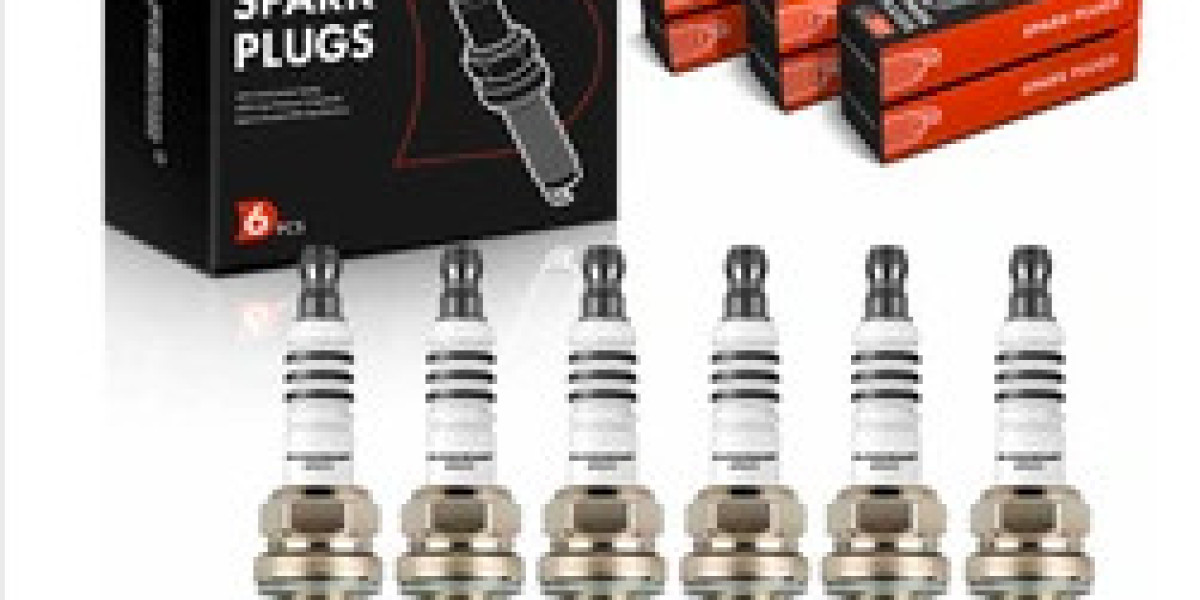Spark plugs are small but crucial components in your car’s engine that play a vital role in keeping the engine running smoothly. While many car owners may overlook them, spark plugs are essential for proper engine function, fuel efficiency, and overall performance. In this article, we’ll explain the role of spark plugs like A-Premium spark plugs, how they work, the signs of a failing spark plug, and the importance of maintaining them.
What Are Spark Plugs?
Spark plugs are small devices that deliver an electric spark to ignite the air-fuel mixture in the engine's cylinders. They are an essential part of the ignition system and are typically found in every cylinder of an internal combustion engine. Spark plugs are usually made of a metal body with a ceramic insulator and a central electrode. They are designed to withstand high temperatures and pressures inside the engine and ensure reliable ignition of the fuel.
How Do Spark Plugs Work?
The primary function of a spark plug is to ignite the air-fuel mixture inside the engine's combustion chamber. Here's how it works:
Ignition Process: When the engine is running, the spark plug is activated by an electrical current from the ignition coil. The ignition coil converts the battery’s voltage into a much higher voltage, which is sent to the spark plug.
Spark Generation: Once the voltage reaches the spark plug, it creates a spark between the central electrode and the ground electrode at the tip of the plug. This spark is hot enough to ignite the compressed air-fuel mixture inside the cylinder.
Combustion: The ignition of the air-fuel mixture causes a controlled explosion, creating the power necessary to drive the engine’s pistons. This explosion pushes the pistons down, turning the crankshaft and ultimately powering the car’s wheels.
Repetition: This ignition process happens repeatedly and rapidly as the engine runs, with each spark plug firing at the right moment to keep the engine running smoothly.
The Importance of Spark Plugs
Spark plugs are integral to several aspects of your vehicle’s performance:
Engine Efficiency: The spark plug’s ability to create a consistent spark ensures that the fuel in the engine is burned efficiently. Efficient fuel combustion leads to better engine performance and power output.
Fuel Economy: A well-functioning spark plug promotes optimal fuel combustion, which can help improve fuel efficiency. Worn-out spark plugs can lead to incomplete combustion, causing the engine to consume more fuel than necessary.
Engine Performance: Faulty or worn-out spark plugs can lead to misfires, rough idling, and a loss of engine power. This can make driving more difficult and less enjoyable. Healthy spark plugs ensure that the engine runs smoothly, with smooth acceleration and proper power delivery.
Emissions: Spark plugs help reduce harmful emissions. When spark plugs are working properly, they contribute to a more complete combustion process, which reduces the amount of unburned fuel released into the environment.
Engine Longevity: By ensuring the engine runs smoothly and efficiently, spark plugs can help prolong the life of the engine. Regularly replacing worn-out spark plugs can prevent costly engine repairs and maintain your car’s health.
Signs of Failing Spark Plugs
Spark plugs wear out over time, and as they degrade, they may show signs of failure. Here are some common symptoms that your spark plugs might need replacement:
Poor Acceleration: If you experience sluggish acceleration or difficulty gaining speed, it could be due to a malfunctioning spark plug not providing the proper spark.
Engine Misfires: A misfire occurs when the spark plug fails to ignite the air-fuel mixture properly. This can lead to engine hesitation, jerking, or uneven power delivery.
Rough Idle: If the engine feels rough or shaky when idling, it may be a sign that one or more spark plugs are no longer working efficiently.
Decreased Fuel Efficiency: Worn spark plugs can cause incomplete combustion, which leads to poor fuel economy. If you notice your car is using more fuel than usual, spark plugs could be the culprit.
Check Engine Light: A failing spark plug can trigger the check engine light, signaling that something is wrong with the ignition system. If the light comes on, it’s worth checking the spark plugs.
Difficulty Starting the Engine: If the engine cranks but doesn’t start, or if it takes multiple attempts to start, faulty spark plugs may be preventing proper ignition.
How to Maintain and Replace Spark Plugs
Spark plugs need to be inspected and replaced periodically to keep your engine running in top condition. Here’s what you can do:
Regular Inspection: Spark plugs should be inspected regularly. You can do this during routine maintenance checks or when performing other tasks like changing the oil. Inspect the spark plugs for signs of wear, carbon buildup, or corrosion.
Replacing Spark Plugs: Spark plugs typically need to be replaced every 30,000 to 100,000 miles, depending on the make and model of your vehicle. Always follow the manufacturer’s recommendations for replacement intervals.
Use the Right Spark Plugs: Make sure to use the correct type and model of spark plugs for your car. Using the wrong spark plug can cause performance issues and even engine damage.
Proper Torque: When installing new spark plugs, it’s crucial to torque them to the manufacturer’s specified settings. Over-tightening or under-tightening the spark plugs can lead to problems such as misfires or engine damage.
Clean or Replace Wires: In some cases, the ignition wires or coils can contribute to spark plug failure. Make sure to inspect these components and replace them if necessary.
Conclusion
Spark plugs at https://a-premium.com/spark-plug are small yet vital components in your car’s engine. They play a crucial role in igniting the air-fuel mixture, ensuring efficient combustion, and maintaining optimal engine performance. Regular maintenance, including checking and replacing spark plugs, is essential for keeping your vehicle running smoothly and preventing costly repairs. If you notice any signs of spark plug failure, it’s best to address them early to avoid further engine issues. By paying attention to your spark plugs, you’ll ensure that your car runs efficiently, provides good fuel economy, and delivers the power you need when you hit the road.







